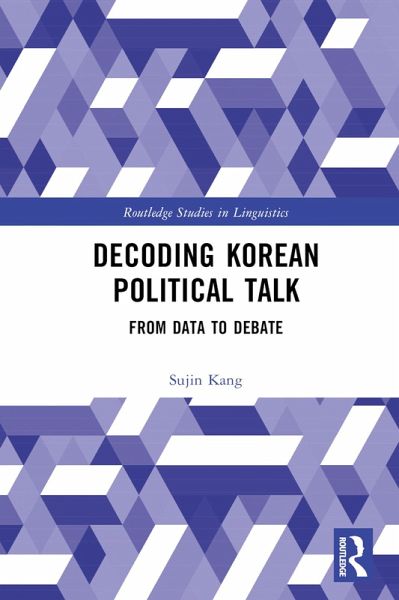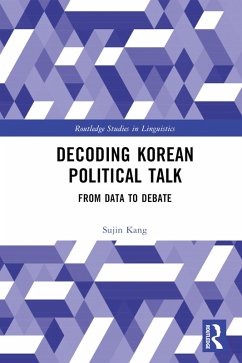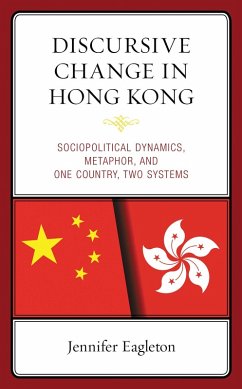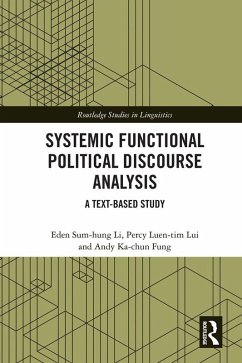
Decoding Korean Political Talk (eBook, ePUB)
From Data to Debate
Versandkostenfrei!
Sofort per Download lieferbar
42,95 €
inkl. MwSt.
Weitere Ausgaben:

PAYBACK Punkte
21 °P sammeln!
This book offers an illuminating exploration into the complex world of political communication in South Korea from 2016 to 2021.Through an in-depth analysis of 34 political conversations totalling over 275 hours, this book presents a groundbreaking interdisciplinary study combining quantitative and qualitative methods. It delves into the intricate design and strategic use of questions and answers in political dialogue, shedding light on the underlying rhetoric, strategy, and power dynamics. By examining the seismic shifts in South Korea's political landscape, including a major political scanda...
This book offers an illuminating exploration into the complex world of political communication in South Korea from 2016 to 2021.
Through an in-depth analysis of 34 political conversations totalling over 275 hours, this book presents a groundbreaking interdisciplinary study combining quantitative and qualitative methods. It delves into the intricate design and strategic use of questions and answers in political dialogue, shedding light on the underlying rhetoric, strategy, and power dynamics. By examining the seismic shifts in South Korea's political landscape, including a major political scandal, the impeachment of the president, North-South relations, and the COVID-19 pandemic, this work presents a unique perspective on how political conversations shape, and are shaped by, societal and global events. It is a vital contribution to the study of Korean linguistics, offering tools and frameworks for analyzing political dialogue in a political setting.
An indispensable resource for scholars and students in the fields of linguistics, political science, communication studies, and Asian studies, as well as political enthusiasts and professionals engaged in diplomatic and governmental sectors. It offers readers insights into the nuanced strategies of political discourse, enhancing their understanding of how language shapes politics and vice versa.
Through an in-depth analysis of 34 political conversations totalling over 275 hours, this book presents a groundbreaking interdisciplinary study combining quantitative and qualitative methods. It delves into the intricate design and strategic use of questions and answers in political dialogue, shedding light on the underlying rhetoric, strategy, and power dynamics. By examining the seismic shifts in South Korea's political landscape, including a major political scandal, the impeachment of the president, North-South relations, and the COVID-19 pandemic, this work presents a unique perspective on how political conversations shape, and are shaped by, societal and global events. It is a vital contribution to the study of Korean linguistics, offering tools and frameworks for analyzing political dialogue in a political setting.
An indispensable resource for scholars and students in the fields of linguistics, political science, communication studies, and Asian studies, as well as political enthusiasts and professionals engaged in diplomatic and governmental sectors. It offers readers insights into the nuanced strategies of political discourse, enhancing their understanding of how language shapes politics and vice versa.
Dieser Download kann aus rechtlichen Gründen nur mit Rechnungsadresse in A, B, BG, CY, CZ, D, DK, EW, E, FIN, F, GR, HR, H, IRL, I, LT, L, LR, M, NL, PL, P, R, S, SLO, SK ausgeliefert werden.













